
Martian analog (JSC0)
Practical significance
High similarity of the VIS/NIR spectrum of the JSC Mars-1 simulant with that corresponding to a martian bright region spectrum as measured from the Earth and the ISM Phobos-2 instrument
Origin
The JSC Mars-1 sample consists of weathered volcanic ash from the Pu'u Nene cinder cone on the Island of Hawaii (USA). The original sample was sieved (200 µm sieve). Part of the sample was heated up to 200C for 24 hours to get rid of the volatile components. The heated sample is called JSC200, whereas the non-heated JSC0.
Main constituent
Palagonitic tephra
Color
Dark grey
Particle size Mie: reff (μm)
29.5
Particle size Mie: veff
1.1
Particle size Fraunhofer: reff (μm)
17.2
Particle size Fraunhofer: veff
2.4
Size distribution plot:
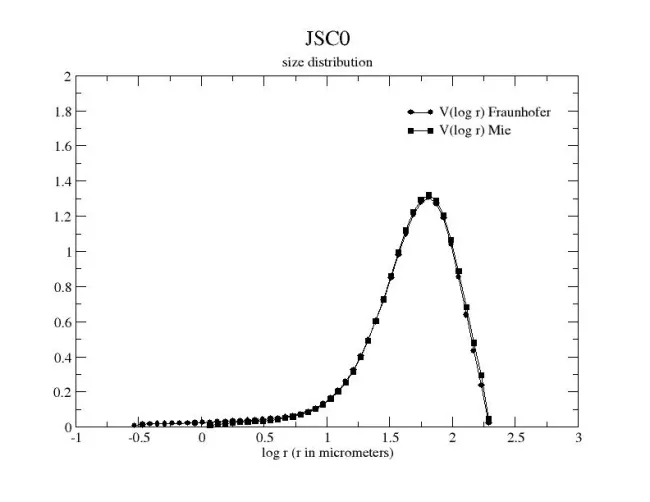
Size distribution table
SEM/TEM images:
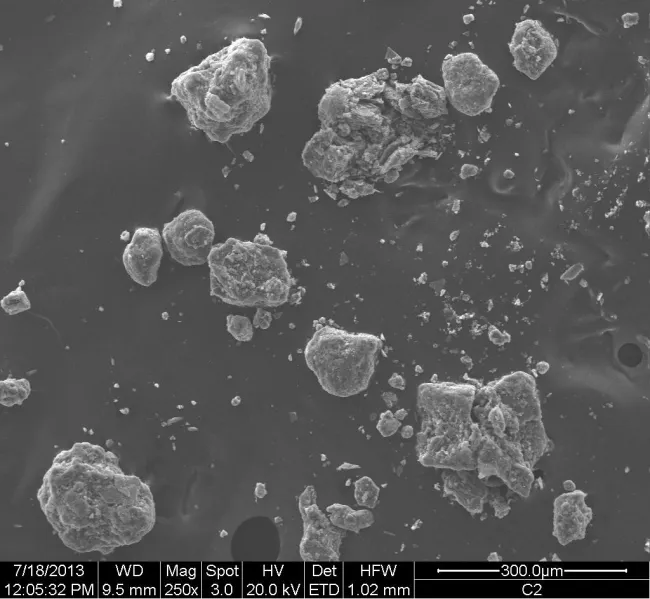
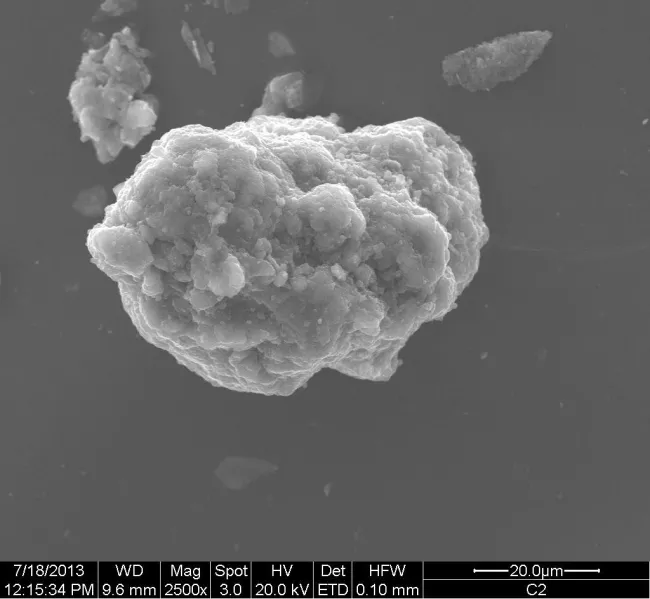
All SEM/TEM images (zip file)
Scattering matrix (1) wavelength in nm
488.00 nm
Scattering matrix (1) table
Scattering matrix (1) plot:
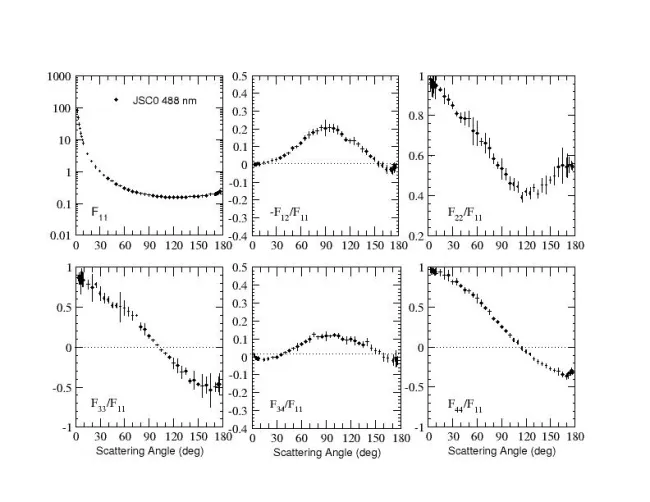
Scattering matrix (2) wavelength in nm
647.00 nm
Scattering matrix (2) table
Scattering matrix (2) plot:
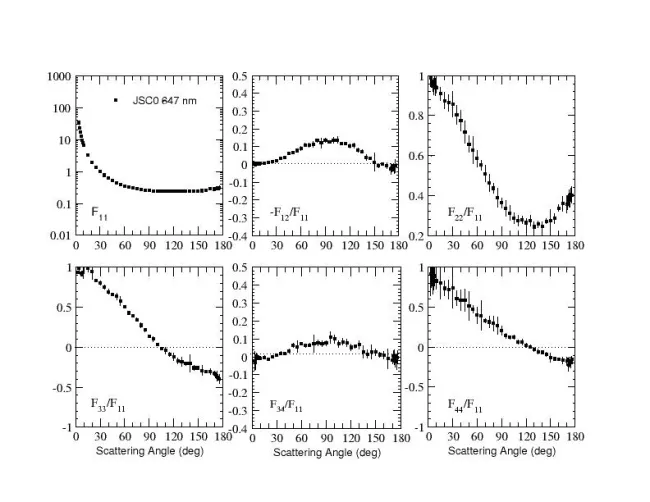
Synthetic scattering matrix (1) wavelength in nm
488.00 nm
Synthetic scattering matrix (1) table M
Synthetic scattering matrix (1) table F
Synthetic scattering matrix (2) wavelength in nm
647.00 nm
Synthetic scattering matrix (2) table M
Synthetic scattering matrix (2) table F
Refractive index
1.5 + i0.01 (488nm)
1.5 + i0.001 (647nm) (Clancy et al. 1995)
Angle range (deg)
[3,177]
Reference/s